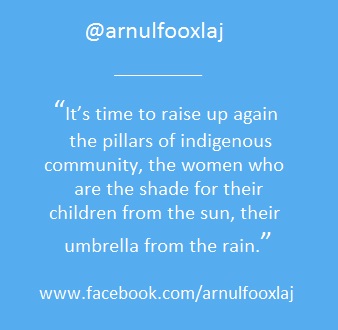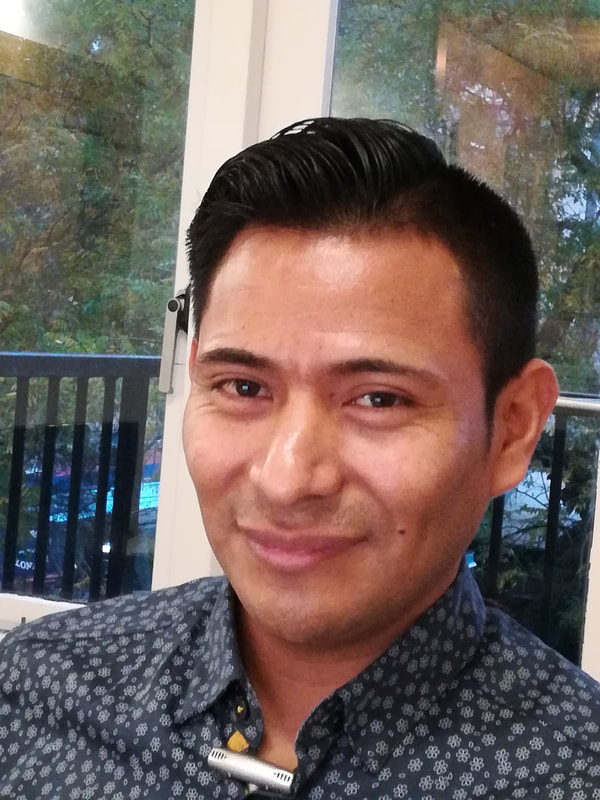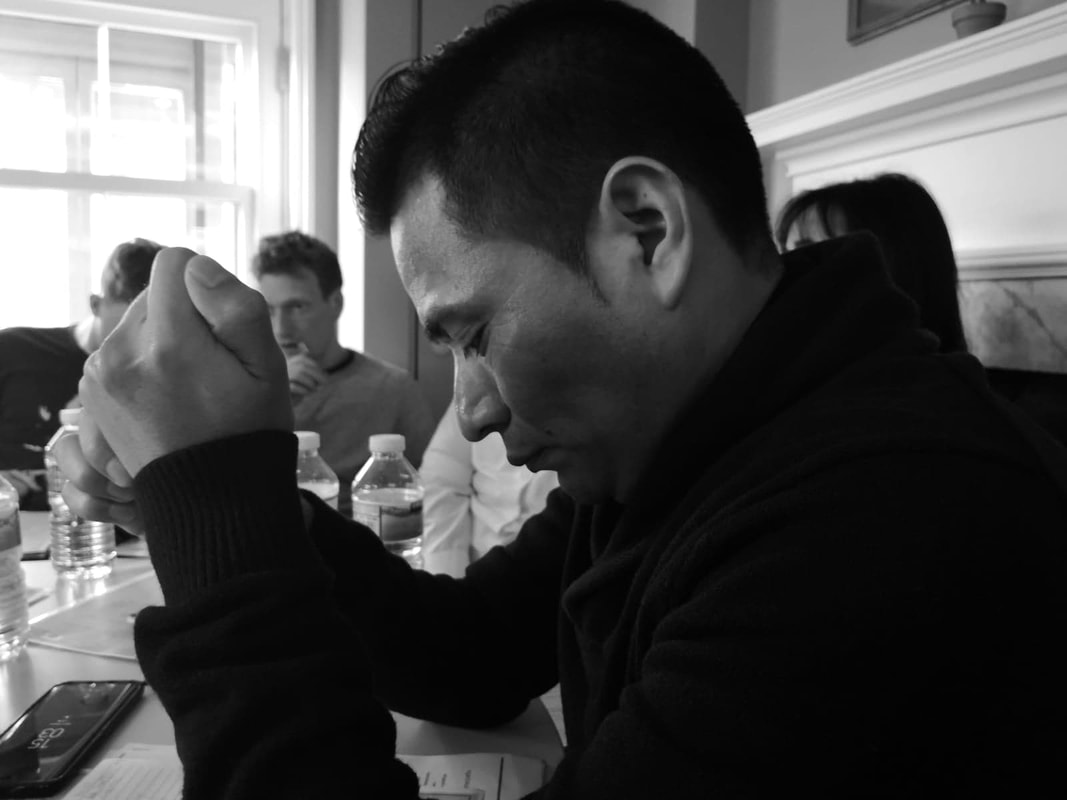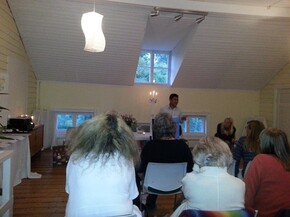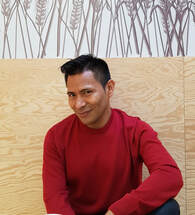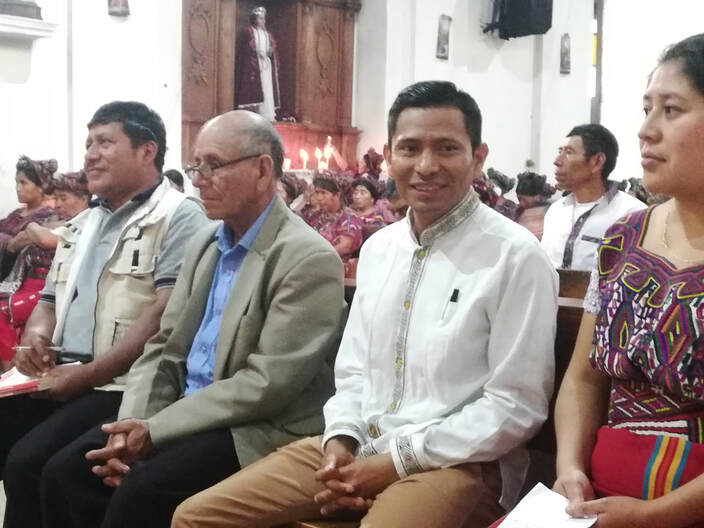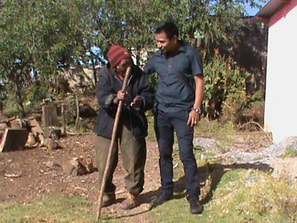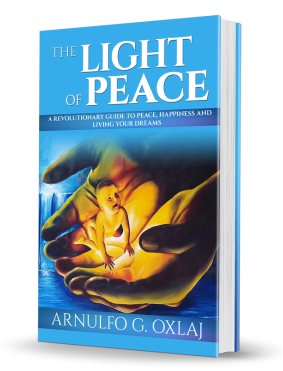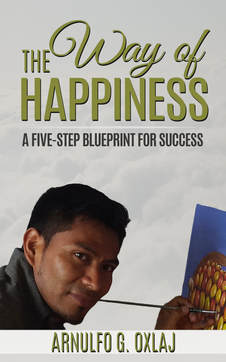Humanitarian, teacher and ambassador for peace on behalf of his Mayan people Arnulfo inspires people young and old to be part of the "revolution of love and generosity".AMOR's Founder, Arnulfo Oxlaj (Osh-lǡh) is a Mayan human rights leader, medicine man, philosopher, author, speaker and artist from Guatemala. An ambassador for peace on behalf of his K’iche’ Mayan people, Arnulfo is the founder and president of AMOR, whose aim is justice for the Mayan people, preservation of their rich knowledge and cultural heritage, helping weave peace and freedom in the world, and freedom from oppression for all people so they may realise their full potential – their natural right.
The only survivor of a child massacre during the 36-year holocaust perpetrated against the Mayan people, Arnulfo has dedicated his life to fighting for justice for Guatemala's native Mayan people and to promoting indigenous rights and wellbeing in Guatemala and internationally. Full Biography Born blind, deaf and mute during the Mayan holocaust, Arnulfo was guided by his grandfather (who died when he was 124 years old) in Mayan Philosophy, Psychology and the ancient Mayan healing arts. Arnulfo learned to see, hear and speak with the soul. A medicine man, at that young age he began to help the sick and vulnerable with their health in all areas of their lives. He saw the great conflict present in the hearts of humanity; he observed that “we have forgotten our natural rights; our souls are anaesthetised and traumatised, and we no longer see how we are destroying our own selves.” He saw the hearts and souls of the people crying out and felt compelled to be a part of the solution for peace. At the age of seven, Arnulfo received his sight, hearing and voice in a single instant. For the first time, he could see walls, and he felt panic. He could also see with his own eyes the enormity of the suffering of his people. Soon thereafter, his childhood was interrupted by a terrible event. On Saturday, 21st May, 1988, the Guatemalan army, led by Christian democratic president Vinicio Cerezo and assisted by several NATO members, carried out a massacre in the village of Chiul, Cunén, Quiché, in which they kidnapped hundreds of Ajq’ijab’, historically the day keepers of the Mayan people, misnamed ´Mayan priests´. 116 boys and girls were also kidnapped and taken to the military base where the soldiers tortured their prisoners and raped the women. The soldiers selected three pregnant young women who they raped and ripping open their wombs with machetes. They stamped on each sac and decapitated the screaming women. The 116 girls and boys were also tortured and thrown into a well filled with water and the faeces of the soldiers. Several hours later, the soldiers reappeared only to urinate on the children, to cries of “Glory to our Lord and Saviour Jesus Christ” and “Ave Maria”. Little by little the children suffocated and drowned. That day 115 boys and girls died. Only one child managed to survive. After four nights and five days in the well, he was rescued by a woman. This surviving child is the Mayan philosopher, Arnulfo Oxlaj. Grateful for his life, Arnulfo vowed to devote his life to helping his people, intensifying his efforts to take food, medicine and words of hope to those in need every night under the cover of darkness. Arnulfo used Mayan Psychology to prevent that terrible event from taking root in him and causing him trauma, a method he today teaches others through talks and art. Just a couple of years later, Arnulfo was discovered by a Swiss man, Claude-Alain Maret, who had come in search of him following a dream. Mr. Maret went on to adopt Arnulfo, who was educated in Europe in politics, philosophy and economics. However, he never forgot his K’iche’ Mayan roots, traditions and language, continuing to practice and share them as he had always done. Arnulfo speaks several Mayan languages, Spanish and English. His godfather always encouraged him to seek justice when he was older for the kidnapping, torture and massacre he and his 115 companions suffered and on behalf of all the women and men who perished there. Arnulfo recognised that the Mayan civilisation is rich, but that the European elite in Guatemala imposes poverty on them in a system of modern-day apartheid. And so, as a young man he returned to Guatemala to lead his people to freedom from the terrorism, racism, constant invasion of their lands and languages and destruction of their natural resources, cultural heritage and philosophical, psychological, political and economic knowledge that the Mayan people continue to endure. Arnulfo set about preparing his people and seeking justice for the massacre in the well. A human rights activist and social justice campaigner for over 20 years, Arnulfo is leading the campaign for justice for the Chiul Massacre in which 115 children and numerous adults perished. He is the founder and president of AMOR International, an NGO dedicated to freeing the Mayan people and helping weave peace and justice in the world. This work is funded primarily by Arnulfo’s speaking, coaching and art. AMOR has helped tens of thousands of Mayan people rise up out of extreme poverty through programmes which provide humanitarian relief as well as build human rights leadership to help the Mayan people regain their dignity and autonomy. AMOR’s transformational leadership programmes also help engage young people in local and global action for peace using Mayan wisdom in the UK and worldwide. Today, using his gift and the wisdom of his K’iche’ Mayan ancestors, using Mayan Philosophy and Psychology as a base, Arnulfo helps people achieve lasting peace in their lives through his coaching and workshops delivered internationally. Author of The Light of the Soul, his message is that true peace is possible if we dare to lift the veil that has been placed over our eyes. Arnulfo has worked with thousands of people in Latin America, North America and Europe, and spoken at philosophical and political conferences, government human rights fora, indigenous organisations, trade unions, prisons, hospitals, churches, corporations, embassies, universities, schools and camps. |

